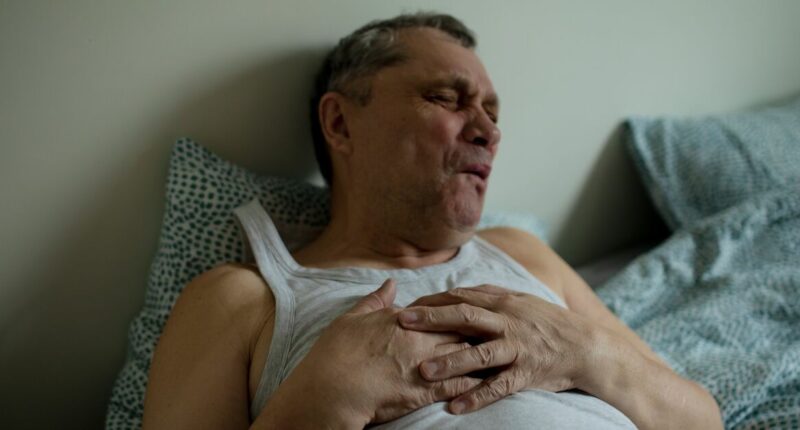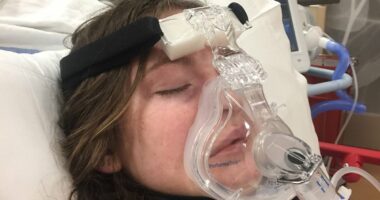Share this @internewscast.com
The NHS has issued an advisory for those experiencing a particular Covid symptom, emphasizing that your sleeping position might exacerbate the discomfort.
As temperatures drop across the UK, the likelihood of contracting seasonal illnesses like colds, flu, or COVID-19 increases. These viruses flourish in colder settings and can spread with ease as people spend more time indoors.
For most individuals contracting Covid, recovery typically occurs within days or weeks without needing medical treatment. The NHS advises ample rest to support the recovery process.
It is also recommended that if you have symptoms and feel too unwell to carry out your normal activities, you should stay home and limit contact with others.
Additionally, the NHS has offered specific advice for managing a cough, which is a prevalent symptom of Covid.
A persistent cough is particularly common, with the NHS defining it as continuous coughing for over an hour or experiencing three or more coughing bouts in a 24-hour period.
To ease this symptom, the NHS says: “Do not lie on your back if you have a cough – lie on your side or sit upright instead.” This advice is backed by Dr Elizabeth Rainbolt.
Find out about the symptoms you need to watch out for and get health advice with our free health newsletter from the Daily Express
Speaking to the Cleveland Clinic, she warned that lying flat on your back can worsen postnasal drip. If you have a dry cough, sleeping on your side instead of your back can help minimise irritation, she said.
Dr Rainbolt added: “Elevating your head is probably the best sleeping position. Whether it’s by adding another pillow or raising the head of your bed, this can help your cough by not allowing drainage to collect at the back of your throat too much.”
Symptoms
Aside from a cough, the NHS lists other symptoms of Covid as:
- A high temperature or shivering (chills) – a high temperature means you feel hot to touch on your chest or back (you do not need to measure your temperature)
- A loss or change to your sense of smell or taste
- Shortness of breath
- Feeling tired or exhausted
- An aching body
- A headache
- A sore throat
- A blocked or runny nose
- Loss of appetite
- Diarrhoea
- Feeling sick or being sick
How to speed up recovery
The NHS explains that it’s not always possible to treat COVID-19. “But there are things you can do to help ease some of the symptoms, such as a high temperature, a cough and breathlessness,” it says.
Therefore, it recommends you:
- Get lots of rest
- Drink plenty of water to avoid dehydration (your pee should be light yellow or clear)
- Take paracetamol or ibuprofen if you feel uncomfortable
- Try having a teaspoon of honey if you have a cough – do not give honey to babies under 12 months
- Try turning the heating down or opening a window to help with breathlessness
- Breathe slowly in through your nose and out through your mouth, with your lips together like you’re gently blowing out a candle
- Sit upright in a chair to help with breathlessness
- Relax your shoulders, so you’re not hunched to help with breathlessness
- Lean forward slightly – support yourself by putting your hands on your knees or on something stable like a chair to help with breathlessness
- Do not use a fan to cool your room as it may spread the virus
- Try not to panic if you’re feeling breathless – this can make it worse
For more information, visit the NHS website here.














